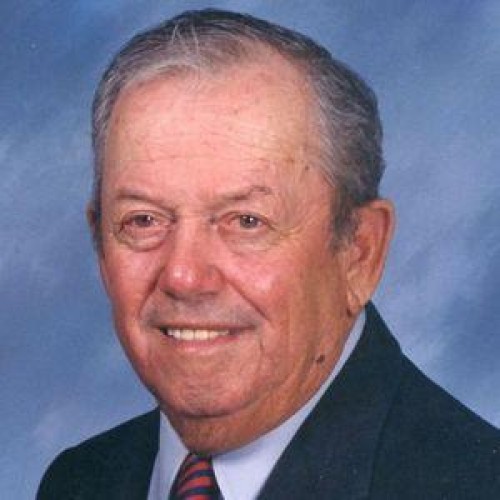Tuesday, Dec. 6
December 6, 2011
Jake P. Lipari
December 8, 2011Education, health care, retirement and criminal incarceration are among the concerns members of Blueprint Louisiana intend to bring before the state legislature in 2012.
Blueprint Louisiana board member Rudy Gomez, the organization of business owners has no paid staff, received mixed reactions from the floor as he presented a five-point plan of action to members of the Houma-Terrebonne Chamber of Commerce.
“Blueprint is a statewide non-partisan group of business and community leaders who came together in 2006, around the idea of looking at fundamental reforms in Louisiana that needed to be implemented,” Gomez aid. “[they are] state level, legislative, public policy reforms.”
Gomez said Blueprint Louisiana has addressed education, healthcare, infrastructure and coastal protection during the past five years. “Blueprint has focused on a short list of priority recommendations and tried to get those implemented at the state capitol,” he said.
Presenting his new list, Gomez told those in attendance that Blueprint Louisiana wants legislators to begin by reforming schools.
“The first thing has to do with public education,” Gomez said. “The purpose of those changes is to provide greater autonomy, authority and accountability at the [local] school level,” Gomez said.
Gomez said that schools that are not performing well need to undergo radical changes to improve student performance.
“This means allowing principals to manage their own budgets and how they spend money and run their schools,” he said. “I expect you will see legislative bills put forward to address or eliminate tenure in the state. We’ve got to have teachers in the classroom that can perform.”
A second issue for Gomez and Blueprint Louisiana is the proposed creation of a uniform pre-kindergarten system.
“We have one of the best pre-k programs in the country,” he said. “You need to coordinate better and we need to get our money’s worth out of that program and have [children] ready for kindergarten.”
“No. 3 deals with public retirement and our liability to pay for the structure of retirement programs and health care benefits for our state workers,” Gomez said. “The focus here is long term stability. The state cannot afford to put off structural, and systematic changes that will insure we live up to our commitments. We have a system that is in trouble. It is beginning to squeeze a lot of our public institutions. It is not pleasant to talk about but we have to face the reality of how big these numbers are getting and what that future looks like if we don’t make structural changes.”
A fourth item brought by Gomez took aim at so-called charity hospitals and a return to the original Blueprint Louisiana agenda that called for the closing of several medical facilities in the LSU medical system.
“Louisiana is unique in that we have nine or 10 state-run hospitals that are focused primarily on providing care for the uninsured,” Gomez said. “Once upon a time it was an innovative system. Today it is problematic [and] a lot of those facilities are no longer financially viable. … What we are arguing for is to look at those facilities [and] services and ask, ‘does this make financial sense?’”
The fifth agenda item for Blueprint Louisiana urges reconsideration of incarceration of select convicted criminals with public policy changes for release and a lack of extended jail time. “[This] is part of a national movement that you are seeing in many states,” Gomez said. “What we have done … in terms of our sentencing guidelines, sentencing rules, sentencing laws has created this enormous population of incarcerated people, most of which are low level, non-violent offenders. It is financial restraints that have people looking at this.”
Gomez’s message prompted polarized reaction among attendees from those that strongly support the Louisiana Blueprint to those that said it prompts serious concerns.
“I thought [Gomez’s presentation] was wonderful,” state Rep.-elect Lenar Whitney said. “I think he has wonderful ideas to implement for the new session in 2012. They are not easy issues to tackle and will take a lot of consideration from both sides to be fair.”
“I think that we would be willing to entertain any reasonable idea,” Leonard J. Chabert Medical Center CEO Rhonda Green said in response to the Blueprint Louisiana call to close some state medical facilities. “We would be willing to look at our business model. I think it is very good. We have run a very lean operation and I think our fiscal model could be the model for others. The community supports the hospital and we are doing fine right where we are.”
“Somebody asked me, ‘Where are the easy ones on this list,’” Gomez said. “There are no easy ones on this list. If they were easy we would have already done them. We think public policy changes can be made in the legislature and will create a better blueprint for Louisiana.”
Houma-Terrebonne Chamber of Commerce Chairman J.J. Buquet, who is also on the Blueprint Louisiana board, said that the Chamber has no current issues to send to state legislators.
Houma-Terrebonne Chamber of Commerce Chairman J.J. Buquet, left, joins in conversation with Rudy Gomez of SSA Consultants and T. Baker Smith CEO Kenny Smith about their common interest regarding Blueprint Louisiana and plans for 2012. MIKE NIXON








